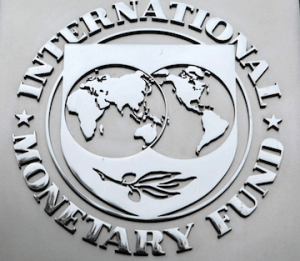Ghana government advised to renegotiate IMF bailout conditions
 The Executive Director of Institute of Fiscal Studies, Professor Newman Kwadwo Kusi has noted that government might not meet the macro-economic and fiscal targets set out in the International Monetary Fund (IMF) bailout programme.
The Executive Director of Institute of Fiscal Studies, Professor Newman Kwadwo Kusi has noted that government might not meet the macro-economic and fiscal targets set out in the International Monetary Fund (IMF) bailout programme.
This, he said, is because the targets are ambitious and unrealistic, and therefore advised the government to consider renegotiating the terms to enable it meet the mark within the scheduled period of the programme.
Prof Kusi said this at the macro-economic forum of the Institute of Social, Statistical and Economy research at the University of Ghana organised by the Economy of Ghana Network on the theme: “Ghana’s fiscal policy and IMF bailout.”
As part of the fiscal consolidation effort, the IMF programme seeks to retrench government expenditure by 4.1 percentage points of Gross Domestic Product from 2015 – 2017.
Over the programme period, the Bank of Ghana monetary policy is to continue pursuing inflation targeting framework aims at achieving a single digit inflation rate in 2016.
However, inflation is projected to reduce to 12 per cent by the end of 2015.
But, Prof Kusi said that the targets are impractical and overly optimistic to achieve within the 10-year period of the programme.
“Certain conditions in the bailout programme are either unrealistic or too optimistic and some are difficult to accept,” he said.
The fiscal deficit targets are also too ambitious, he added, given the structural weaknesses, poor management of the country’s public finance, and the slowdown of economic growth.
Economists say the projected slowdown of Ghana’s economy in 2015 would be the lowest in more than two decades, making the expected strong rebound over the medium term too optimistic.
“Unless the macro-economic environment improves significantly, the additional oil and gas come on stream, and cost-effective solutions to address the energy crisis are found, the growth targets in the medium term will be difficult to achieve,” Kusi.
He said the zero financing of government by the Central Bank over the medium term was also unrealistic and could have negative growth implications.
“The programme (IMF), therefore, needs to be re-examined, with the view to adjusting the fiscal and growth targets to more realistic levels,” he said.
In a move to restore macro-economic imbalances and bolster investor confidence dipped as a result of rising inflation, sinking local currency and mounting public debt, Ghana rolled onto an IMF programme, binding itself to stringent conditions.
Following series of discussions and review meetings with the Ghanaian authorities, the fund released $114 million, representing just about 12 per cent of the $918.8 million prescribed for the West African Country.
Source: GNA
